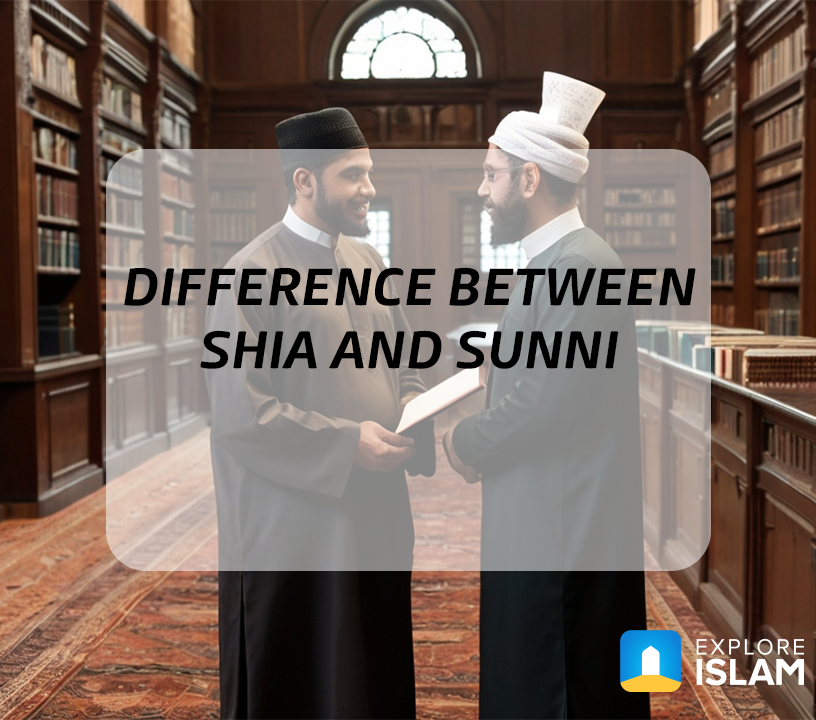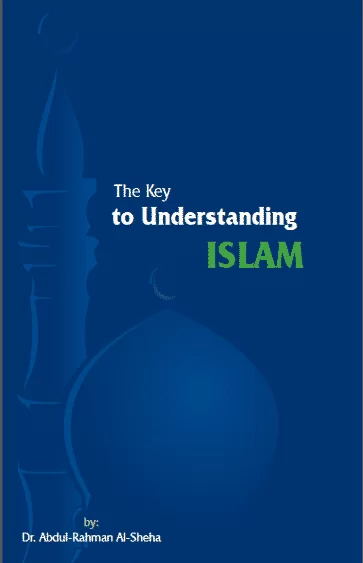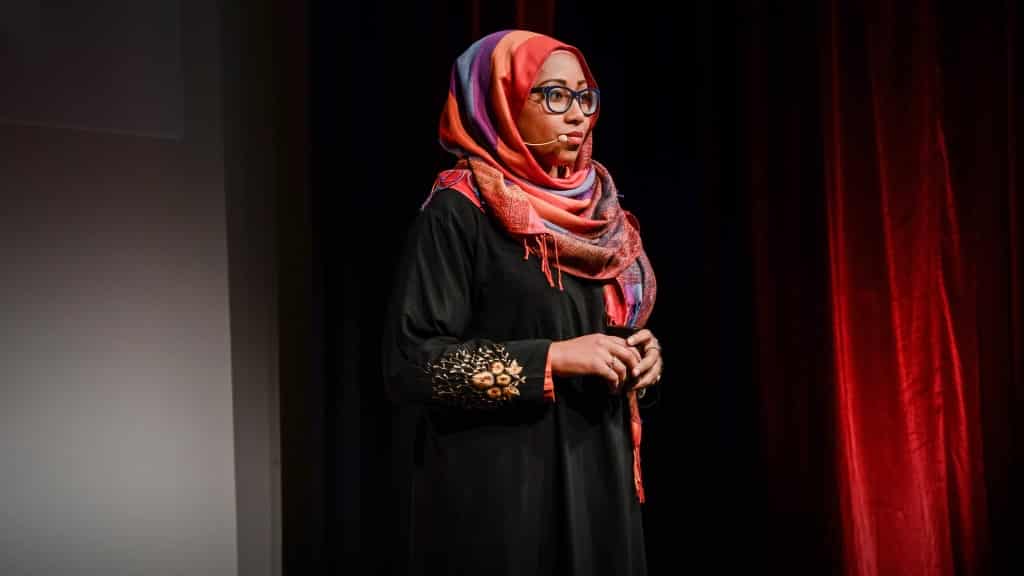Sunni and Shia Muslims share fundamental beliefs in Allah’s oneness and the Prophet Muhammad’s (PBUH) message but differ in leadership views after his death. Sunnis, about 85% of Muslims, follow the Qur’an and Sunnah with leadership based on merit, while Shias, around 15%, uphold Ali’s lineage as divinely chosen leaders, shaping distinct practices like commemorating Karbala and emphasizing clerical authority.
As a given, Islam is the final, divine message for guiding, unifying all humanity together, and blessing them with a clear vision, and pure uprightness, away from misleading illusions, and deviations. On the other hand of the sweeping spreading of the Islam religion, many rumors, questions, conflicts, and suspicions have been aroused about the true message of Islam, wondering about those who are the most adhering to its clear truth and enlightening guidance.
If Islam is that true, divine religion that gathers all the humans in belief, why can we see now two separated sects in the Muslims, the Sunnis, and the Shias? Who are they? Which of them follows the truth of Islam? Let’s discuss that together in the upcoming lines. Pay attention, and you can tell, by yourself, at the end.
Who Are The Sunnis and the Shias?
To start with, we need to know who those two sects are:
1. The Sunnis:
Simply, the Sunnis are the major sect of Muslims, by the percentage of 85 % of the Muslim World. They are those who explicitly believe in Allah, as The One and Only God, and in Muhammed (PBUH) as His servant and Messenger. Also, they appreciate the Sahabha (the Prophet’s Companions), as they are the first Muslim generation learning the Islam’s message, directly from the Prophet (PBUH), and conveying it perfectly to the next generations.
The “Sunnis” term derives from the “Sunnah of the Prophet (PBUH)”; they are the followers of the Qur’an revealed from Allah to his Prophet (PBUH), and the Prophetic traditions that explain the Qur’an. Sunnis hold unto those two sources of guidance, as the Prophet (PBUH) himself recommended to all Muslims: “As long as you hold fast to two things which I have left among you, you will not go astray: Allah’s Book and His Messenger’s Sunnah”. (Hasan)
2. The Shias:
On the other hand of Sunnis, there was a group that emerged in a political context, and they are called “Shias”. In Arabic, the term “Shia” indicates a certain sect, group, followers, or partisans taking one of the sides. Historically, Shias are those who are considered as ‘the adherent partisans of Ali’, the cousin of the Prophet (PBUH), and the Fourth Caliph of the Muslims.
In a nutshell, Shias see that Ali Ibn Abi Talib- by the bloodline he shares with the Prophet (PBUH)- was the legitimate Successor, and Commander of the Muslims, directly after the death of Prophet Muhammed (PBUH), not Abu Bakr, nor Omar Ibn Al-Khattab, nor Uthman; they see that the Successors should only from the bloodline of the Prophet (PBUH), and they call them “Ahl Al-Bait” (the people of the Prophet’s House).
Differences between Sunnis and Shias:
Both sects, Sunnis and the majority of Shias, believe in Allah as the Only God, and Muhammed (PBUH) as His Messenger. However, in the past, Shias have dispersed into many groups, like Zaidi Shia, and Twelvers Shia (who believe in the Twelve Imams worthy of ruling, from the Prophetic bloodline). Yet, as Shia, themselves, got different from how they started, and even divided into sub-groups with various, uncommon concepts, then, a number of differences can be now clearly detected between the Sunnis and Shias; let’s give a hint at some of those crucial differences:
| Difference | Sunnis | Shias |
| Belief in Monotheism | Sunnis believe completely in Allah- and Allah alone- as The Only One God, with no partners, nor associates. So, they directly call Allah in their prayers, without any mediator. “O Allah, I supplicate You to…” | Zaidi Shia are the closest to the Sunnis in their beliefs of God. The Shias of Old Sabai’, and today’s Alawi, revere Ali so much that they attribute him with divine powers, and almost making him as a God. That leads them to deviate from the Islam’s central belief, monotheism.Major of Shia associates Ahl Al-Bait, Imams, or Ali, with their supplications: “O Ali, grant us…” “O Hussain, bless us with…” |
| Countries | Sunnis are the majority of Islamic countries, all over the world, by the percentage of 85%. | Shias are a minority by the percentage of only 15 %, in certain countries like Iran, Afghanistan, Iraq, Morocco, and Lebanon. |
| Imamah (Succession Of Muslims) | Sunnis, like in the first generations of Islam, think that the most worthy of Imamah is the most qualified, and suitable to the Muslim community, at each time.Imam, or the Successor, should be chosen by suggestion, election, and the consensus of the majority, like electing Abu Bakr, Omar, and so on. | Shias think that Imamah is a right given to certain people by Allah Almighty, and Imams are divinely chosen as the same as Messengers, by their lineage. Shias believes in “the Twelve Imams” of the Muslim Nation, starting with Imam ‘Ali till Imam Al-Mahdi. They think that those rightful Imam should even fight for their divine right of Imamah. |
| Sahabah (The Prophet’s Companions) | Sunnis faithfully respect Sahaba, as they are the first generation to learn the Islam message, directly from the Prophet PBUH), and appreciate the Companions’ great efforts for acting upon the pure truth of Islam, and for conveying the Islamic inspiring teachings, principles, and beliefs to the whole Muslim world then.Sunnis consider Allah’s praise upon the Companions:[And the first forerunners [in the faith] among the Muhājireen and the Anṣār and those who followed them with good conduct – Allāh is pleased with them and they are pleased with Him…] [At-Tawbah:100] | Shias has opposite opinions about the Companions. Rawafid, a Shia group, even accuses the Companions with blasphemy! Shias do not accept many of the practices of the Companions, and even discard many Prophetic hadiths narrated by the Companions, and that definitely affects their Islamic rhythm.Shias think that Companions are unworthy of being respected, while the Qur’an clearly states the contrary. |
| Taqiyyah (Cover) | To Sunnis, you can find no such regular practice of Taqiyyah. Taqiyyah indicates covering one’s belief in Islam, when he had to, like when facing death, or torture.So, to Sunnis, Taqiyyah is something rare to use, only in the forcing circumstances, and inevitable necessities. Muslims can hide their belief in Islam, if he is sure to get killed, or deadly harmed, just because of his religion. At that case, in his heart, he is still a Muslim, yet without declaring that in this fatal situation. | Shias has a regular, common practice of Taqiyyah. Actually, it has become known as an exclusive term to them.They usually change, or hide their Shia- beliefs, as a way to spread their Shiasm, and to argue over their historical contradictions, and to defend their unreasonable practices. Islam-phobias attack the whole Muslims, due to Taqiyyah, turning a blind eye to the fact that only Shias do this unjustifiably. |
| Sharia | Sunnis follow the pure Islamic Sharia, derived from the two sources of Islam: the Qur’an, and the Prophetic Sunni. Even in the new, updated situations of every time, they derive their rulings, based on those two sources, trying hard to not deviate from them, and not to innovate what is incompetent with the Islamic principles.Sunnis follow the Islamic practices, like: Zakah (Alms’ Giving):According to Shari’a, only financially capable Sunnis pay Zakat (2.5 %) of their wealth, to support certain society-people, like the needy and the poor. No Pleasure Marriage:Sunnis disapprove of “the Pleasure Marriage”. It is a contract-like marriage where the man and woman only marry for a certain period, just for their own pleasure of making love, not to make a family! So, this kind of marriage is forbidden in Islam, and to the Sunnis, as it has nothing to do with the main, honorable aim of marriage.No Self-Beating:Sunnis don’t scream, nor beat themselves over their beloved dead; instead, they ask Allah for having mercy for them. | Shias, over time, have been deviated from the right path of the Islamic, clear Sharia, and innovated some non-Islamic practices, like:Clergy’s Authority:Shias give authority to their clergies, by which the Shias have to obey their clergies as if they are the Messengers.Not only that but also to buy 1/5 of their wealth yearly to their clergy! Pleasure Marriage:Shias think that it is okay to marry for pleasure, discarding the clear Islamic ruling for that matter.Self-Beating:Shias do a very awkward practice, which includes painful self-beating, and excessive mourning, weeping, and crying out over recalling the martyrdom of Husain.Such unreasonable self-beating is exclusive to Shias, and forbidden in Islam actually, as the Prophet (ﷺ) said, “He who slaps his cheeks, tears his clothes and follows the ways and traditions of the Days of Ignorance is not one of us.” |
| Mahdi | The Sunnis believe that Al-Mahdi (The Guided) is a Muslim from the Prophetic lineage, called “Muhammad” too, who will come at the end of the times, to rule, and command the Muslims with justice and peace, for seven years.The Sunnis know about his coming, abiding by only the Prophetic hadiths, like;“Mahdi will be one of the descendants of Fatimah.” (Hasan)The Sunnis believe that Al-Mahdi is yet to be born. | The Twelvers- that Shia-group believing in the 12 Imams, those popular nowadays- say that Al-Mahdi is the 12th Imam, by the chosen bloodline. Yet, the 11th Imam, “Al-Hasan Al-Askari” had no children after him to succeed. That contradicts the Shias believe of the right of Imamah by lineage. They made up a lot of stories about the coming of Al-Mahdi, and even claim that he is the unknown son of Al-Hassan! And he has been kept hidden in a cave in Iraq, not to get harmed, nor killed for his authority. However, years passed and he never showed himself.The Shias narrated different stories that are so perplexing, for Al-Mahdi, as he was said to be a son of 8 different women! After people got skeptical for their groundless stories about Al-Mahdi, they came up with another, ending with Al-Mahdi is kept hidden for no clear reason; it is like a myth that you can’t get! |
| Hadith Narrating Methodology | Sunnis follow a very strict way to authenticate the Prophetic Hadiths. It is a whole knowledge of collecting and verifying only the real hadiths of the Prophet (PBUH).The source is of course the Prophetic saying, and then, followed by the close, direct narrators, like the Companions, and then those following them, through a complete chain of trusted hadith-narrators till known scholars, like Bukhari, and Muslim. | Shias, on the other hand, go the other way; they claim a Prophetic hadith, only based on a blind faith, with no real verification, nor authenticating methodology. Their chain of hadith-narrators are weak, broken, and filled with gaps and fabrications, finding no evidence back at that time.They just mention what they believe in, and ignore many authenticated hadiths narrated by major Companions, just because they don’t like them. |
| Alternative Qur’an | Sunnis, as in Islam, believe that the Qur’an is the Holy Book of Allah, and His divine, preserved, and lasting miracle to guide all the humanity, till the Judgment Day.They know that Allah has revealed and protected the Qur’an, His Message, from any fabrication, or fading away: [Indeed, it is We who sent down the message [the Qur’ān], and indeed, We will be its guardian.] [Al-Hijr: 9].So, to the Sunnis, there is no such thing called “Alternative Qur’an”. The Qur’an is one and only, that one revealed to Muhammad (PBUH) and divinely preserved to reach us all. | Shias believe in the Qur’an, too, but they once claimed that there was “Alternative Qur’an” that Ali hid away, only passing it to his offspring, until Al-Mahdi.Then, the Shias, themselves, deny that, and reject that mythical claim, telling that they actually follow the Qur’an, as all Muslims, especially when the miraculous nature of Qur’an proves its divine inimitability over all times.That tells a lot not only about this claim, but about all such sort of their non-stop, baseless myths. |
| Criteria | The criteria of the Sunnis to be a pious Muslim is to devotedly adhere to the Qur’an teachings and commands, along with following the Prophetic Sunnah, and to keep away from the religious deviations, and man-made innovations. | The criteria of Shias is to be blindly loyal, and obedient to the Shia Imams, and clergies, without asking questions. Also, it is to get along with their emotional attractions, unreasonable stories, and biased practices. |
How Have Shias Originated and Then Grown?
To recognize how Shiasm found its way till our present moment, we can have a look at its origin, and then how it develops over time, going through many changes:
Shiasm Origin:
As said, Shias did not come to light, except after the death of the Prophet (PBUH) in 632, due to the succession issue. They oppose the Sunnis regarding this matter.
The Sunnis see that the succession after the death of the Prophet (PBUH) went smoothly, as it was decreed by Allah. The Muslims actually agreed upon choosing Abu Bakr, at that time, as the Caliph of the Muslims, as they saw that he was the closest one to the Prophet (PBUH), and in turn, the most knowing of the Islam teachings, and principles, keeping the Muslim community on the right track. This was the same electing way followed for the succession of Omar Ibn Al-Khattab, Othman Ibn ‘Affan, and Ali Ibn ‘Abd Al-Mutalib, himself, then.
On the other hand, the Shias think that Ali should be the Successor, directly after the Prophet (PBUH), as he is from his own bloodline, unlike those successors preceding him. When Shias were asked why then Ali, himself, accepted, or at least, didn’t oppose, nor fight Caliph Abu Bakr, Omar, nor Othman?! They just replied that Ali, at that time, didn’t have enough military power, nor will to cause a war among the Muslims for his inherited right for succession; he just distanced himself.
Shiasm Developing and Dividing:
Even when Ali became the Successor, and the Commander of the Muslims, Muslims were generally divided, especially as the precedent succor Othman was assassinated. Some Muslims groups fought against Ali, leading to consequent fights and splits in the Muslim community, and ending up with the assassination of Ali, himself, and choosing Al-Hasn, Ali’s son, to be the following successor, and then to Mu’awiyyah, who passed the succession to his son, Zaid Ibn Mu’awiyah, despite the objection of the Muslims who saw Zaid unworthy of ruling.
That political split continued, resulting in the sorrowful Battle of Karbala, where Hussain- Ali’s son, the grandson of the Prophet (PBUH), and the third legitimate Imam for Shia- was painfully martyred, and his army were murdered by the hands of the Zaid’s, Umayyid forces. That even fueled the Shias revolution, and rejection against all the rulers who are unworthy of the succession, ‘as they are not from the Prophetic bloodline’.
Shias continued to get even distant from the ‘majority’ of the Muslims, as they saw that only Twelve Imams from the Prophet’s bloodline, are the legitimate ones, and the rest are just violating this right, and unworthy of their following. That led to far more differences, not only politics, but also in thoughtful and religious practices. They have been gathering together as a detached group, with their own communities, and ideologies, that have been changing over time.
Why Is There Still That Sunnis-Shias Split?
Keep in mind that the reason for originating Shia goes back to those historical, past events that already finished long years ago. Yet, Shias are still insistent on recalling those events over, and over again, only blaming the Sunnis for what happened, and arguing about their privileges over others, due to their attachment to Ahl Al-Bait.
Till now, they are so obsessed with what they call “Ali’s Right of Succession” and the Twelve Imams (from the Prophetic bloodline) that they can’t see anyone but them, above all the Muslims. Also, the awkwardness of their thoughts detach them from the majority of Sunni Muslims, and deviates them from the main purpose of living the life acting upon the Qur’an, and Sunnah of the Prophet (PBUH).
On the other hand, the Sunnis see the past as the ‘past’, finding it meaningless to bring up those past events every time! So, they rather live their lives, trying to focus on the Islamic foundational teachings and principles, and following the Qur’an and the Prophetic Sunnah. However, the Sunnis find it needed to confront, and clarify the Shias’ extremist thoughts and misconceptions which they sometimes spread groundlessly, like their hateful accusations of the Sahabah (Companions).
Who Are the True Muslims? Shias or Sunnis?
If you have been reading till this line, right now, then you can actually answer this question, by yourself!
Definitely, the right Muslims are those most adhering to the central, two sources of Allah’s guidance, the Holy Qur’an, and the Prophetic Sunnah; those are the ones holding unto them to never go astray, nor deviated by any human, changing desires and biases over times.
By nature, by reason, by history, by evidence, by numbers, and by truth, Sunnis are proved to be the due representatives of Islam, focusing on abiding by its meaningful basics, and not indulging in past, senseless myths, anticipated conspiracies, nor groundless fabrications like those invented by the Shias. Common sense is the divine gift for all people, so that they can judge what is right, and what is wrong, what is true and what is false.
Conclusion:
Sunni and Shia Muslims share core beliefs, including the oneness of Allah and the prophethood of Muhammad (PBUH). However, historical and theological differences arose primarily after the Prophet’s death. Sunni Muslims, constituting 85% of the global Muslim population, emphasize following the Qur’an and the Prophetic Sunnah as guiding principles, with leadership determined by merit and consensus.
Shia Muslims, accounting for about 15%, uphold the lineage of Ali, the Prophet’s cousin and son-in-law, as divinely chosen leaders. This belief in “Imamah” led to the formation of various subgroups within Shia Islam, such as Twelvers and Zaidis, each with unique interpretations and practices.
Key differences extend to religious practices and interpretations. Sunni Muslims strictly follow the Qur’an and authentic Hadith collections, emphasizing unity through traditional Sharia. In contrast, Shia Muslims integrate practices like Taqiyyah (concealment of faith) and commemorate historical events like Karbala with unique rituals, including self-flagellation.
They also ascribe distinct authority to their clergy and Imams, sometimes introducing practices like temporary marriage (Mut’ah). These theological and sociopolitical divergences have shaped distinct identities within the broader Islamic tradition.























